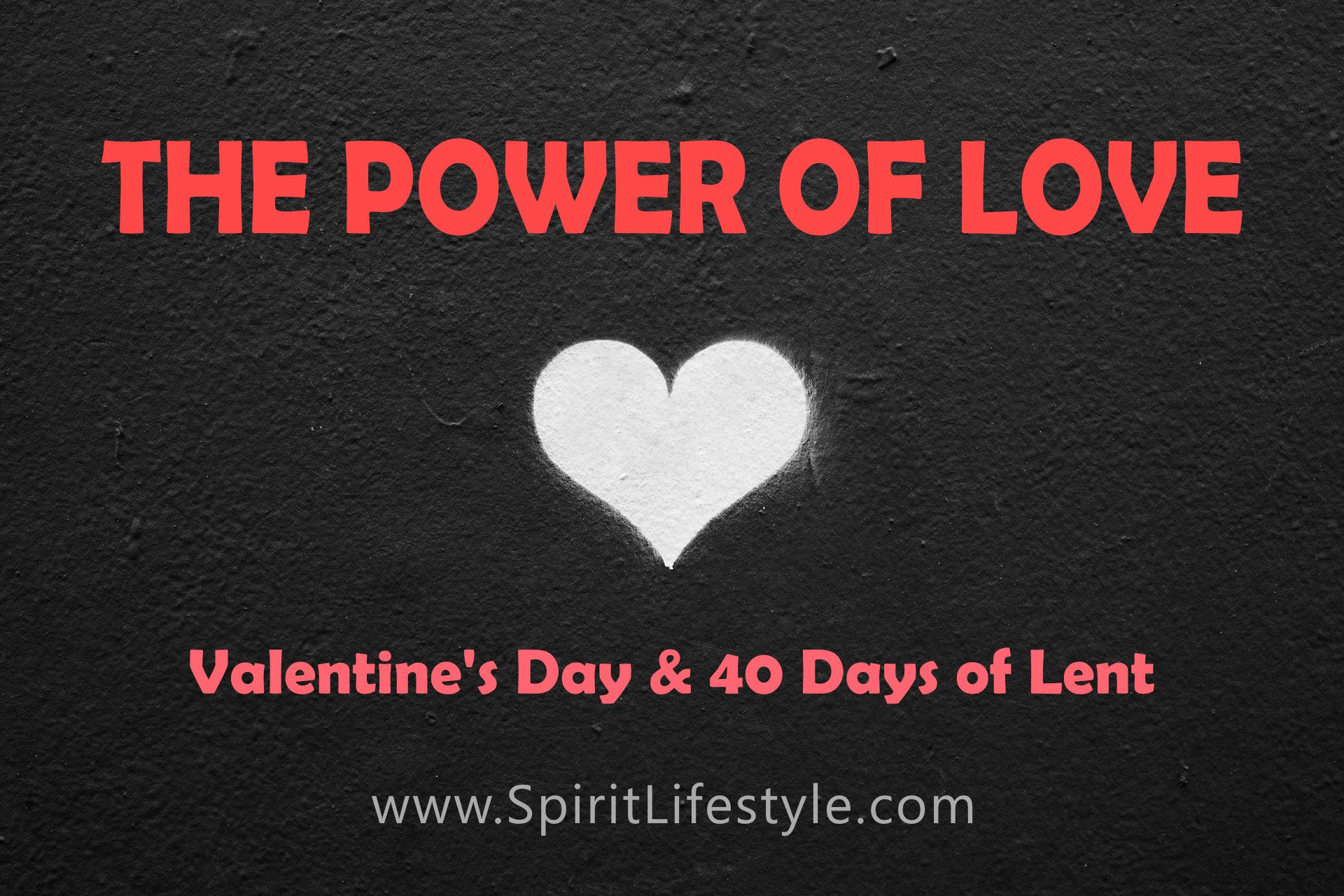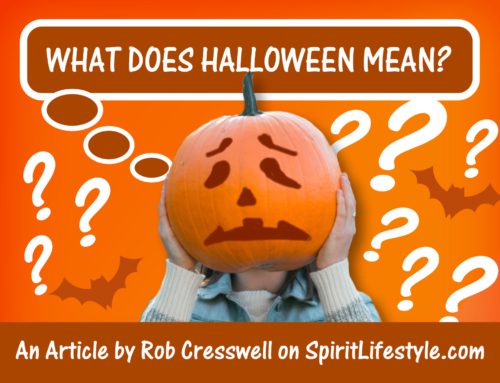
THE POWER OF LOVE
By Rob Cresswell
THE POWER OF LOVE
By Rob Cresswell
Did you know that LENT starts on the same day as VALENTINE’S DAY this year? On February 14th 2024 these two observances couldn’t look further apart. Lent is meant to be a time to discipline the flesh and control our appetites whereas VALENTINE’S DAY is a day to indulge and express them; often with gifts, chocolates and flowers!
The name ‘Lent’ comes from an old word meaning lengthen as it takes place during the early springtime when the days get longer. It’s a time of increasing light and hope ending in the celebration of the death and resurrection of Jesus at Easter.
The 40 days of fasting over Lent are to commemorate (and imitate) Jesus’ 40 days of fasting and temptations in the wilderness. For those strictly observing Lent it’s not great timing… that big heart-shaped box of chocolates may just have to wait!

The period of time from Ash Wednesday to Easter Saturday is actually 46 days. So the way it works as 40 days is to either:
- Don’t include Sundays or
- Fast every day until (and including) Palm Sunday (the Sunday before Easter and the beginning of ‘Holy Week’).
HAPPY ASH WEDNESDAY!
I’d like to propose (no pun intended!) that perhaps there’s more of a connection between Valentine’s Day and Lent than meets the eye.
“Then Jesus was led by the Spirit into the wilderness to be tempted by the devil.” Matthew 4:1
When Jesus was led into the wilderness by the Holy Spirit it was an act of love and devotion that took him there. But just to be clear – there are many types of love and while Valentine’s Day celebrates EROS LOVE (romantic, lustful, passionate love)*, Jesus is responding to the Holy Spirit with AGAPE LOVE – a selfless, divine love that Jesus embodied in his life, death and resurrection.
*Although in some countries like the United States the Valentines tradition has evolved to also include family (Greek ‘STORGE’ – familial love) and friends (Greek ‘PHILIA’ – affectionate friendship).
FEASTING WHILE FASTING
When we consider the idea of the spiritual disciplines it’s natural to focus on the negatives – all that good stuff I have to give up! But when Jesus fasted in the wilderness he said he was feasting in a different way.
When tempted by the devil to ‘turn these stones into bread’ Jesus replied that, although his body needed physical bread, his life was sustained by the word of God.
But He answered and said, “It is written, ‘Man shall not live by bread alone, but by every word that proceeds from the mouth of God.’ ” Matthew 4:4 KJV
The ‘every word’ here is the Greek word RHEMA – which literally means ‘utterance’ or ‘thing being said’. So though he was abstaining from physical food Jesus was being edified by his heavenly Father’s ever present, life-giving words.
In the second and third temptations Jesus demonstrated he was also deeply anchored in his heavenly Fathers’ love and acceptance and refused to test it or bow the knee to any other god. (See Matthew 4 and Luke 4).
We might initially think that Jesus was the victim in these trials and temptations – but truly – when Jesus was led into the wilderness by the Holy Spirit he was the protagonist in these conflicts. Jesus was the one moving in on the devil’s territory and his temptations in the wilderness were preparing him for the years of power-packed, public ministry to follow (miracles of healing, deliverance, provision and raising the dead).
That’s one of the fruits of the devotional disciplines – if done rightly they can edify and strengthen us spiritually and therefore enlarge our capacity to be used by God.
DIVINE LOVE AND POWER
Luke says that Jesus entered the wilderness full of the Spirit but that the result of his time of fasting and victories over the temptations was that he left the wilderness in the POWER of the Spirit.
”Jesus returned to Galilee in the power of the Spirit, and news about him spread through the whole countryside.“ Luke 4:14 NIV
This is an essential lesson for those who would answer the scriptural exhortation to ‘walk like Jesus walked’ (I John 2:6):
“Follow the way of love and eagerly desire gifts of the Spirit…” 1 Corinthians 14:1
and see the reality of Jesus strongly stated words:
“Very truly I tell you, whoever believes in me will do the works I have been doing, and they will do even greater things than these, because I am going to the Father.” John 14:12
Scriptures like these (and many others) teach us that there is a clear correlation between our our submission to God and capacity to move in spiritual power – to ‘follow the way of love’ and ‘do the greater works’.
Disciplines like fasting, if done in the right way, can be a useful tool to help cultivate this love and submission:
“But you, when you fast, anoint your head and wash your face, so that you do not appear to men to be fasting, but to your Father who is in the secret place; and your Father who sees in secret will reward you openly.” Matthew 6:17-18
HAPPY VALENTINES DAY!
Another thing you may not know is that (legend has it) Valentinus was a Christian martyr who was jailed for performing illegal marriages (under Claudius II in the third century). However, while in prison he actually performed a miraculous act of healing blindness on the jailer’s daughter, Julia. On the eve of his death Valentinus wrote a last note to Julia, urging her to stay close to God. He signed it, “From your Valentine.” So even in the Valentines’ story, demonstrating again that godly, selfless love and spiritual power go hand in hand.
So this year – why not – as well as perhaps ‘giving something up for Lent’ – think of what you will feast on too as part of your act of love and devotion – here’s some suggestions:
- Follow a devotional book or course (The Believer’s Guide to Thriving is a good one! 😊)
- Memorise and meditate on a scripture (a verse or a whole chapter)
- Seek to grow in deeper worship and prayer (set aside time in your routine)
- Seek to cultivate compassion and generosity through being proactive instead of reactive
And who knows how much you may grow in the love and power of the Spirit this spring time?
Other resources related to this article…
Did you know that LENT starts on the same day as VALENTINE’S DAY this year? On February 14th 2024 these two observances couldn’t look further apart. Lent is meant to be a time to discipline the flesh and control our appetites whereas VALENTINE’S DAY is a day to indulge and express them; often with gifts, chocolates and flowers!
The name ‘Lent’ comes from an old word meaning lengthen as it takes place during the early springtime when the days get longer. It’s a time of increasing light and hope ending in the celebration of the death and resurrection of Jesus at Easter.
The 40 days of fasting over Lent are to commemorate (and imitate) Jesus’ 40 days of fasting and temptations in the wilderness. For those strictly observing Lent it’s not great timing… that big heart-shaped box of chocolates may just have to wait!

The period of time from Ash Wednesday to Easter Saturday is actually 46 days. So the way it works as 40 days is to either:
- Don’t include Sundays or
- Fast every day until (and including) Palm Sunday (the Sunday before Easter and the beginning of ‘Holy Week’).
HAPPY ASH WEDNESDAY!
I’d like to propose (no pun intended!) that perhaps there’s more of a connection between Valentine’s Day and Lent than meets the eye.
“Then Jesus was led by the Spirit into the wilderness to be tempted by the devil.” Matthew 4:1
When Jesus was led into the wilderness by the Holy Spirit it was an act of love and devotion that took him there. But just to be clear – there are many types of love and while Valentine’s Day celebrates EROS LOVE (romantic, lustful, passionate love)*, Jesus is responding to the Holy Spirit with AGAPE LOVE – a selfless, divine love that Jesus embodied in his life, death and resurrection.
*Although in some countries like the United States the Valentines tradition has evolved to also include family (Greek ‘STORGE’ – familial love) and friends (Greek ‘PHILIA’ – affectionate friendship).
FEASTING WHILE FASTING
When we consider the idea of the spiritual disciplines it’s natural to focus on the negatives – all that good stuff I have to give up! But when Jesus fasted in the wilderness he said he was feasting in a different way.
When tempted by the devil to ‘turn these stones into bread’ Jesus replied that, although his body needed physical bread, his life was sustained by the word of God.
But He answered and said, “It is written, ‘Man shall not live by bread alone, but by every word that proceeds from the mouth of God.’ ” Matthew 4:4 KJV
The ‘every word’ here is the Greek word RHEMA – which literally means ‘utterance’ or ‘thing being said’. So though he was abstaining from physical food Jesus was being edified by his heavenly Father’s ever present, life-giving words.
In the second and third temptations Jesus demonstrated he was also deeply anchored in his heavenly Fathers’ love and acceptance and refused to test it or bow the knee to any other god. (See Matthew 4 and Luke 4).
We might initially think that Jesus was the victim in these trials and temptations – but truly – when Jesus was led into the wilderness by the Holy Spirit he was the protagonist in these conflicts. Jesus was the one moving in on the devil’s territory and his temptations in the wilderness were preparing him for the years of power-packed, public ministry to follow (miracles of healing, deliverance, provision and raising the dead).
That’s one of the fruits of the devotional disciplines – if done rightly they can edify and strengthen us spiritually and therefore enlarge our capacity to be used by God.
DIVINE LOVE AND POWER
Luke says that Jesus entered the wilderness full of the Spirit but that the result of his time of fasting and victories over the temptations was that he left the wilderness in the POWER of the Spirit.
”Jesus returned to Galilee in the power of the Spirit, and news about him spread through the whole countryside.“ Luke 4:14 NIV
This is an essential lesson for those who would answer the scriptural exhortation to ‘walk like Jesus walked’ (I John 2:6):
“Follow the way of love and eagerly desire gifts of the Spirit…” 1 Corinthians 14:1
and see the reality of Jesus strongly stated words:
“Very truly I tell you, whoever believes in me will do the works I have been doing, and they will do even greater things than these, because I am going to the Father.” John 14:12
Scriptures like these (and many others) teach us that there is a clear correlation between our our submission to God and capacity to move in spiritual power – to ‘follow the way of love’ and ‘do the greater works’.
Disciplines like fasting, if done in the right way, can be a useful tool to help cultivate this love and submission:
“But you, when you fast, anoint your head and wash your face, so that you do not appear to men to be fasting, but to your Father who is in the secret place; and your Father who sees in secret will reward you openly.” Matthew 6:17-18
HAPPY VALENTINES DAY!
Another thing you may not know is that (legend has it) Valentinus was a Christian martyr who was jailed for performing illegal marriages (under Claudius II in the third century). However, while in prison he actually performed a miraculous act of healing blindness on the jailer’s daughter, Julia. On the eve of his death Valentinus wrote a last note to Julia, urging her to stay close to God. He signed it, “From your Valentine.” So even in the Valentines’ story, demonstrating again that godly, selfless love and spiritual power go hand in hand.
So this year – why not – as well as perhaps ‘giving something up for Lent’ – think of what you will feast on too as part of your act of love and devotion – here’s some suggestions:
- Follow a devotional book or course (The Believer’s Guide to Thriving is a good one! 😊)
- Memorise and meditate on a scripture (a verse or a whole chapter)
- Seek to grow in deeper worship and prayer (set aside time in your routine)
- Seek to cultivate compassion and generosity through being proactive instead of reactive
And who knows how much you may grow in the love and power of the Spirit this spring time?
Other resources related to this article…
Did you know that LENT starts on the same day as VALENTINE’S DAY this year? On February 14th 2024 these two observances couldn’t look further apart. Lent is meant to be a time to discipline the flesh and control our appetites whereas VALENTINE’S DAY is a day to indulge and express them; often with gifts, chocolates and flowers!
The name ‘Lent’ comes from an old word meaning lengthen as it takes place during the early springtime when the days get longer. It’s a time of increasing light and hope ending in the celebration of the death and resurrection of Jesus at Easter.
The 40 days of fasting over Lent are to commemorate (and imitate) Jesus’ 40 days of fasting and temptations in the wilderness. For those strictly observing Lent it’s not great timing… that big heart-shaped box of chocolates may just have to wait!

The period of time from Ash Wednesday to Easter Saturday is actually 46 days. So the way it works as 40 days is to either:
- Don’t include Sundays or
- Fast every day until (and including) Palm Sunday (the Sunday before Easter and the beginning of ‘Holy Week’).
HAPPY ASH WEDNESDAY!
I’d like to propose (no pun intended!) that perhaps there’s more of a connection between Valentine’s Day and Lent than meets the eye.
“Then Jesus was led by the Spirit into the wilderness to be tempted by the devil.” Matthew 4:1
When Jesus was led into the wilderness by the Holy Spirit it was an act of love and devotion that took him there. But just to be clear – there are many types of love and while Valentine’s Day celebrates EROS LOVE (romantic, lustful, passionate love)*, Jesus is responding to the Holy Spirit with AGAPE LOVE – a selfless, divine love that Jesus embodied in his life, death and resurrection.
*Although in some countries like the United States the Valentines tradition has evolved to also include family (Greek ‘STORGE’ – familial love) and friends (Greek ‘PHILIA’ – affectionate friendship).
FEASTING WHILE FASTING
When we consider the idea of the spiritual disciplines it’s natural to focus on the negatives – all that good stuff I have to give up! But when Jesus fasted in the wilderness he said he was feasting in a different way.
When tempted by the devil to ‘turn these stones into bread’ Jesus replied that, although his body needed physical bread, his life was sustained by the word of God.
But He answered and said, “It is written, ‘Man shall not live by bread alone, but by every word that proceeds from the mouth of God.’ ” Matthew 4:4 KJV
The ‘every word’ here is the Greek word RHEMA – which literally means ‘utterance’ or ‘thing being said’. So though he was abstaining from physical food Jesus was being edified by his heavenly Father’s ever present, life-giving words.
In the second and third temptations Jesus demonstrated he was also deeply anchored in his heavenly Fathers’ love and acceptance and refused to test it or bow the knee to any other god. (See Matthew 4 and Luke 4).
We might initially think that Jesus was the victim in these trials and temptations – but truly – when Jesus was led into the wilderness by the Holy Spirit he was the protagonist in these conflicts. Jesus was the one moving in on the devil’s territory and his temptations in the wilderness were preparing him for the years of power-packed, public ministry to follow (miracles of healing, deliverance, provision and raising the dead).
That’s one of the fruits of the devotional disciplines – if done rightly they can edify and strengthen us spiritually and therefore enlarge our capacity to be used by God.
DIVINE LOVE AND POWER
Luke says that Jesus entered the wilderness full of the Spirit but that the result of his time of fasting and victories over the temptations was that he left the wilderness in the POWER of the Spirit.
”Jesus returned to Galilee in the power of the Spirit, and news about him spread through the whole countryside.“ Luke 4:14 NIV
This is an essential lesson for those who would answer the scriptural exhortation to ‘walk like Jesus walked’ (I John 2:6):
“Follow the way of love and eagerly desire gifts of the Spirit…” 1 Corinthians 14:1
and see the reality of Jesus strongly stated words:
“Very truly I tell you, whoever believes in me will do the works I have been doing, and they will do even greater things than these, because I am going to the Father.” John 14:12
Scriptures like these (and many others) teach us that there is a clear correlation between our our submission to God and capacity to move in spiritual power – to ‘follow the way of love’ and ‘do the greater works’.
Disciplines like fasting, if done in the right way, can be a useful tool to help cultivate this love and submission:
“But you, when you fast, anoint your head and wash your face, so that you do not appear to men to be fasting, but to your Father who is in the secret place; and your Father who sees in secret will reward you openly.” Matthew 6:17-18
HAPPY VALENTINES DAY!
Another thing you may not know is that (legend has it) Valentinus was a Christian martyr who was jailed for performing illegal marriages (under Claudius II in the third century). However, while in prison he actually performed a miraculous act of healing blindness on the jailer’s daughter, Julia. On the eve of his death Valentinus wrote a last note to Julia, urging her to stay close to God. He signed it, “From your Valentine.” So even in the Valentines’ story, demonstrating again that godly, selfless love and spiritual power go hand in hand.
So this year – why not – as well as perhaps ‘giving something up for Lent’ – think of what you will feast on too as part of your act of love and devotion – here’s some suggestions:
- Follow a devotional book or course (The Believer’s Guide to Thriving is a good one! 😊)
- Memorise and meditate on a scripture (a verse or a whole chapter)
- Seek to grow in deeper worship and prayer (set aside time in your routine)
- Seek to cultivate compassion and generosity through being proactive instead of reactive
And who knows how much you may grow in the love and power of the Spirit this spring time?










